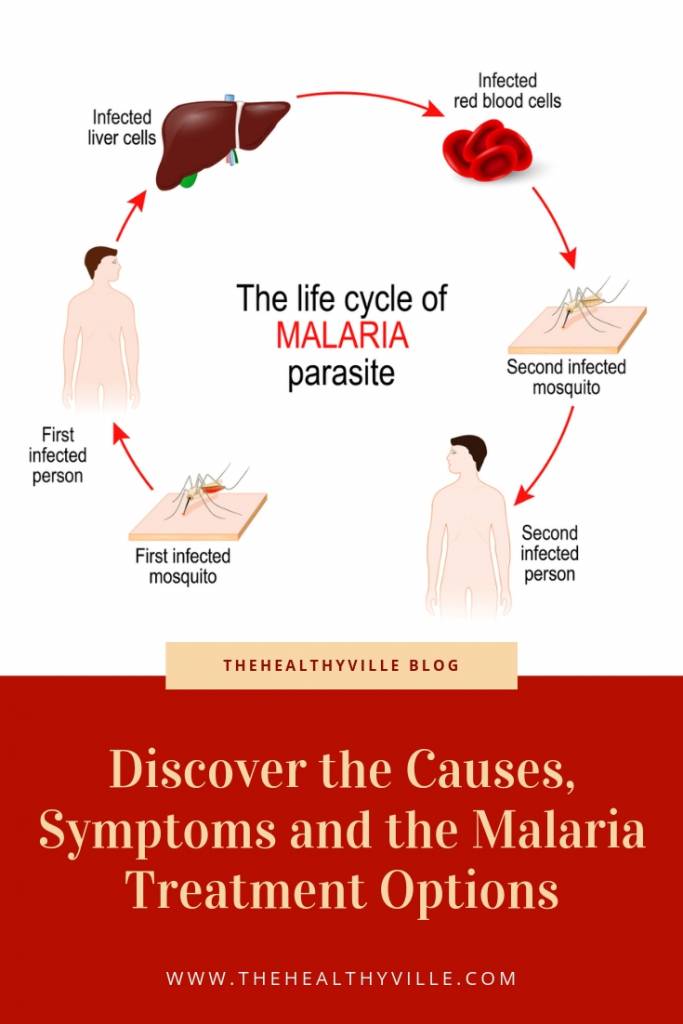Learn about malaria treatment options that you need to start after you get an insect bite and the minute you notice its symptoms!
The symptoms of malaria usually manifest a few weeks after the bite of an infected mosquito. However, some types of malaria parasites can remain dormant in the body for up to a year.
Malaria is a disease also known as malaria. In fact, it is an infection caused by a parasite that develops regularly in tropical areas with warm weather.
It is a life-threatening disease. Estimations are that in 2016 there were 216 million cases of malaria in 91 countries, which means an increase of approximately 5 million from the previous year.
On the other hand, it is a disease whose direct contagion route between humans is for a pregnant woman to transmit it via the placenta to the fetus, by donor blood transfusions that have suffered the disease, or by direct transmission through the bite of a mosquito carrying the parasite.
As for the form of prevention, there was an attempt of a synthetic vaccine against malaria in 1997. Those responsible for its development were the members of the scientific team of Manuel Elkin Patarroyo.
The results of this vaccine were unequal. They reached a maximum efficiency of 28% in South America. In 2010, the vaccine was listed as “inactive” by the WHO.
What causes malaria?
Malaria is a parasitic disease that is transmitted through the female Anopheles mosquito.
This disease is the result of an infection by a type of parasite that uses as a host a specific genus of mosquito. The parasite is Plasmodium falciparum; the mosquito is of the genus Anopheles.
Once the mosquito bites a human, the parasites travel through the bloodstream to the liver. In this organ, they mature and produce another form of parasites called merozoites.
These parasites re-enter the bloodstream and infect the red blood cells. Once there, they multiply and the cells break after 48 to 72 hours. The causes for the most symptoms are:
- The release of merozoites in the bloodstream.
- Anemia resulting from the destruction of red blood cells.
- Large amounts of free hemoglobin released into the circulation after the breakdown of red blood cells.
What are the symptoms?
The symptoms of this disease usually manifest a few weeks after the bite of an infected mosquito. However, some types of malaria parasites can remain dormant in the body for up to a year. A clinical picture of malaria usually causes the following signs and symptoms:
- Fever.
- Shaking chills.
- Headache.
- Nausea and vomiting.
- Muscle pain and fatigue.
In addition to the above, a patient suffering from malaria may also present other symptoms such as excessive sweating, pain in the abdomen or chest and cough.
In fact, some people with malaria experience cycles of malaria “attacks”. The attacks usually start with tremors and chills, accompanied by high fever and followed by perspiration. Afterwards, the patient recovers the normal temperature.
Complications
If after a trip to an endemic place we have experienced fever and other symptoms, we should go immediately to a doctor
Malaria is a disease that, as we have said, can be deadly, especially that caused by the variety of parasites that are common in tropical regions of Africa. In most cases, the deaths are related to one or more serious complications, which include the following:
- Brain Malaria. If the blood cells with parasites block the small blood vessels of the brain, inflammation of the brain can cause seizures and even coma.
- Respiratory problems. If pulmonary edema occurs, this can cause breathing problems.
- Failures in the functioning of certain organs. Malaria can cause organs such as the spleen or liver to fail, causing the patient to even die.
- Anemia. Decrease in the number of red blood cells.
- Hypoglycemia. This low blood sugar status could lead to a comatose state or death.
Malaria treatment
We must distinguish between the different forms of malaria. The uncomplicated form, which is produced by parasites that are not of the falciparum species, is usually treated with a drug called chloroquine. This drug is administered orally.
In addition to chloroquine, there are other alternatives for mild malaria such as quinine or pyrimethamine-sulfadiazine. In areas where plasmodia are resistant to chloroquine, mefloquine can also be used.
On the other hand, in cases of severe malaria, usually by Plasmodium falciparum and frequently resistant to chloroquine, you can treat it with intravenous quinine, although in recent years doctors prescribe new drugs such as artemisinin, mefloquine or halofrantine.
Don’t forget to SHARE the causes, symptoms and malaria treatment options with your friends and family on your social networks!

